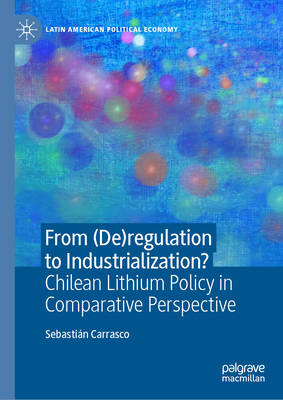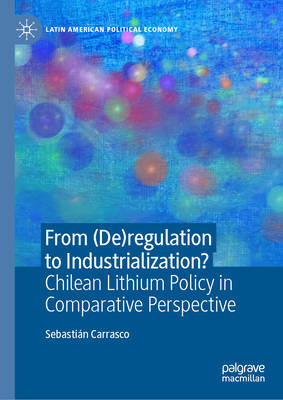
- Afhalen na 1 uur in een winkel met voorraad
- Gratis thuislevering in België vanaf € 30
- Ruim aanbod met 7 miljoen producten
- Afhalen na 1 uur in een winkel met voorraad
- Gratis thuislevering in België vanaf € 30
- Ruim aanbod met 7 miljoen producten
From (De)Regulation to Industrialization?
Chilean Lithium Policy in Comparative Perspective
Sebastián CarrascoOmschrijving
This book aims to elucidate the divergent institutional trajectories of lithium policies in Latin America, shedding light on how industrial development of mining activities can emerge in specific extractivist contexts. While focusing primarily on Chile's lithium policy, the study is further enriched by shadow case analyses of Argentina and Bolivia, reinforcing the robustness of the findings. The research introduces an original typology of industrial policies associated with lithium and argues that the interaction between the state and the companies involved in lithium extraction plays a decisive role in shaping public policy. In this regard, the typology demonstrates its heuristic capacity to analyze green industrialization processes related to lithium. Grounded in theories of state capacity and business power, this analysis posits that the evolution of public policies in this sector is influenced not only by the strength of the state but also by the strategic positioning of businesses in relation to these policies. Given their pivotal role in natural resource-based economic activities, companies emerge as essential actors within the context of industrial policy. This analysis makes a theoretical contribution to state-business relations, engaging with broader debates on green industrial policy within comparative political economy and offering a fresh perspective on the topic. Furthermore, the research explores how these processes related to lithium policies intersect with both global and local dynamics, particularly regarding the advancement of energy transitions and the socio-environmental conflicts in the affected territories.
Specificaties
Betrokkenen
- Auteur(s):
- Uitgeverij:
Inhoud
- Aantal bladzijden:
- 220
- Taal:
- Engels
- Reeks:
Eigenschappen
- Productcode (EAN):
- 9783031771293
- Verschijningsdatum:
- 7/02/2025
- Uitvoering:
- Hardcover
- Formaat:
- Genaaid
- Afmetingen:
- 159 mm x 210 mm
- Gewicht:
- 412 g

Alleen bij Standaard Boekhandel
Beoordelingen
We publiceren alleen reviews die voldoen aan de voorwaarden voor reviews. Bekijk onze voorwaarden voor reviews.











